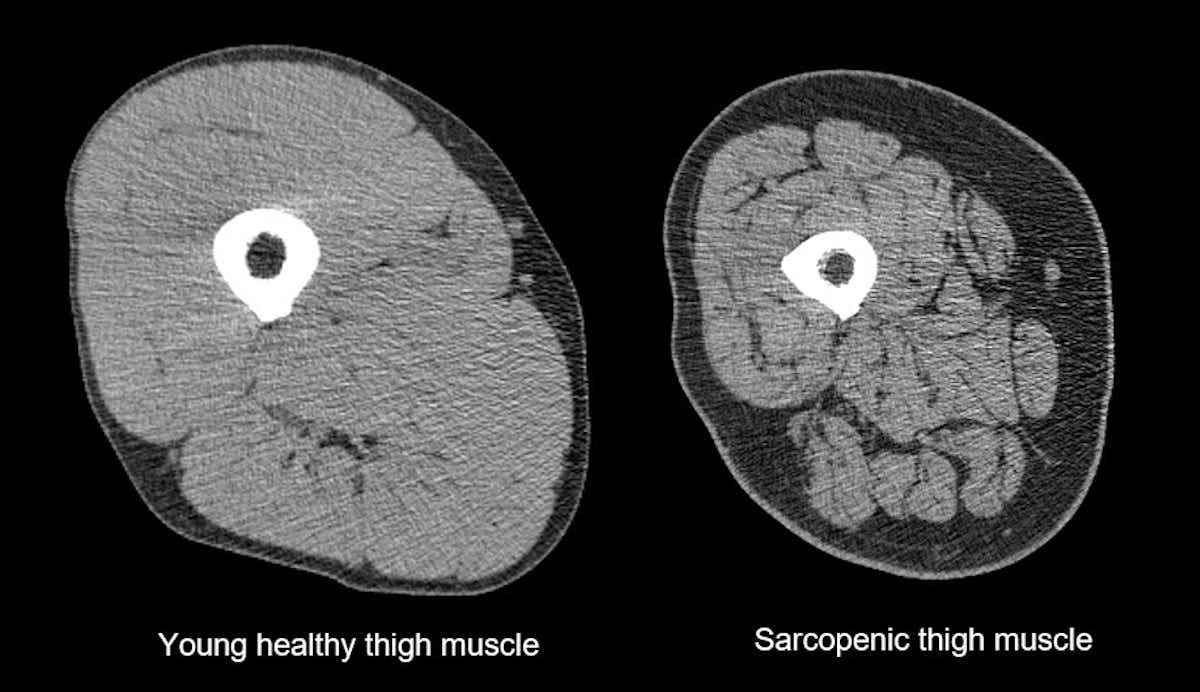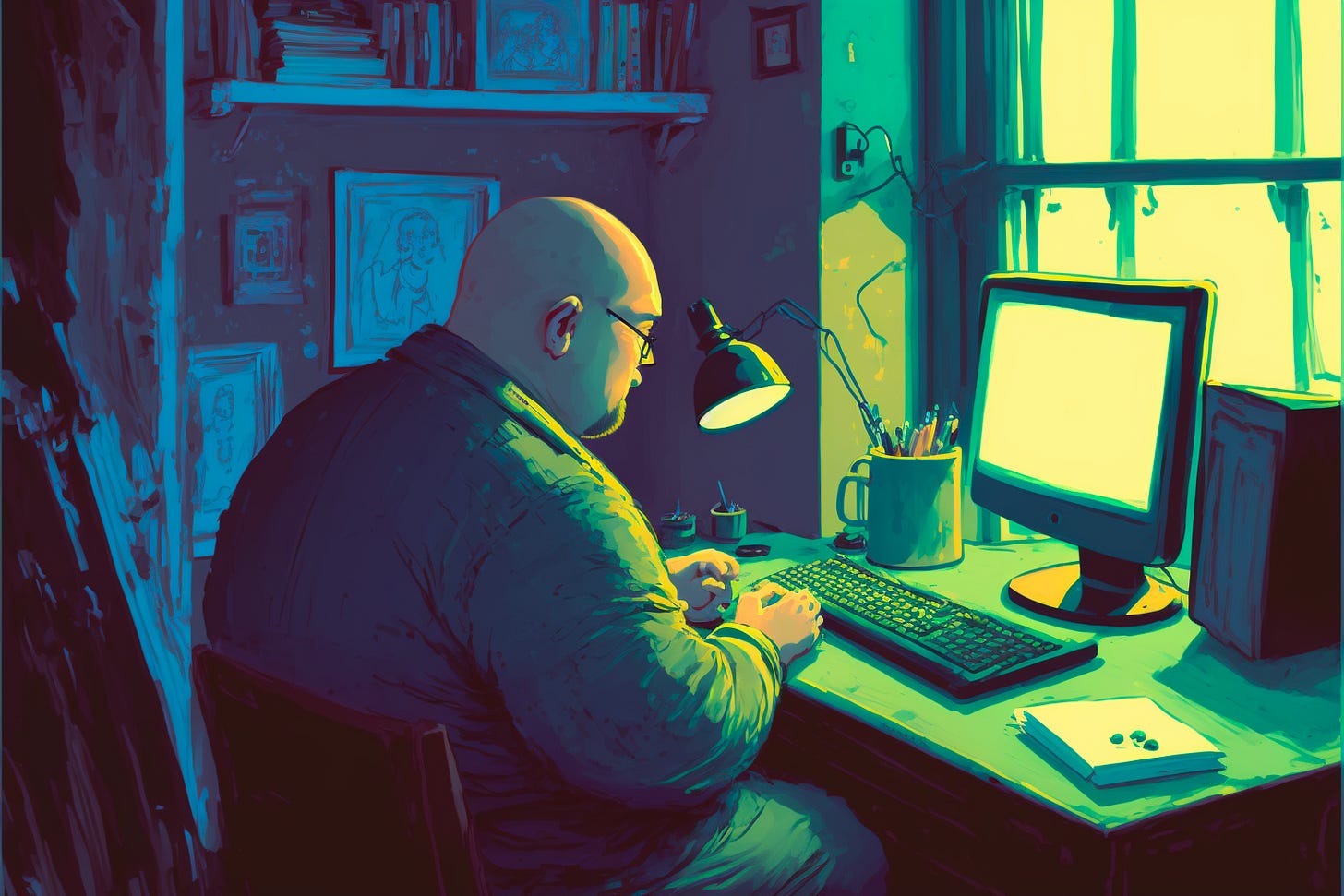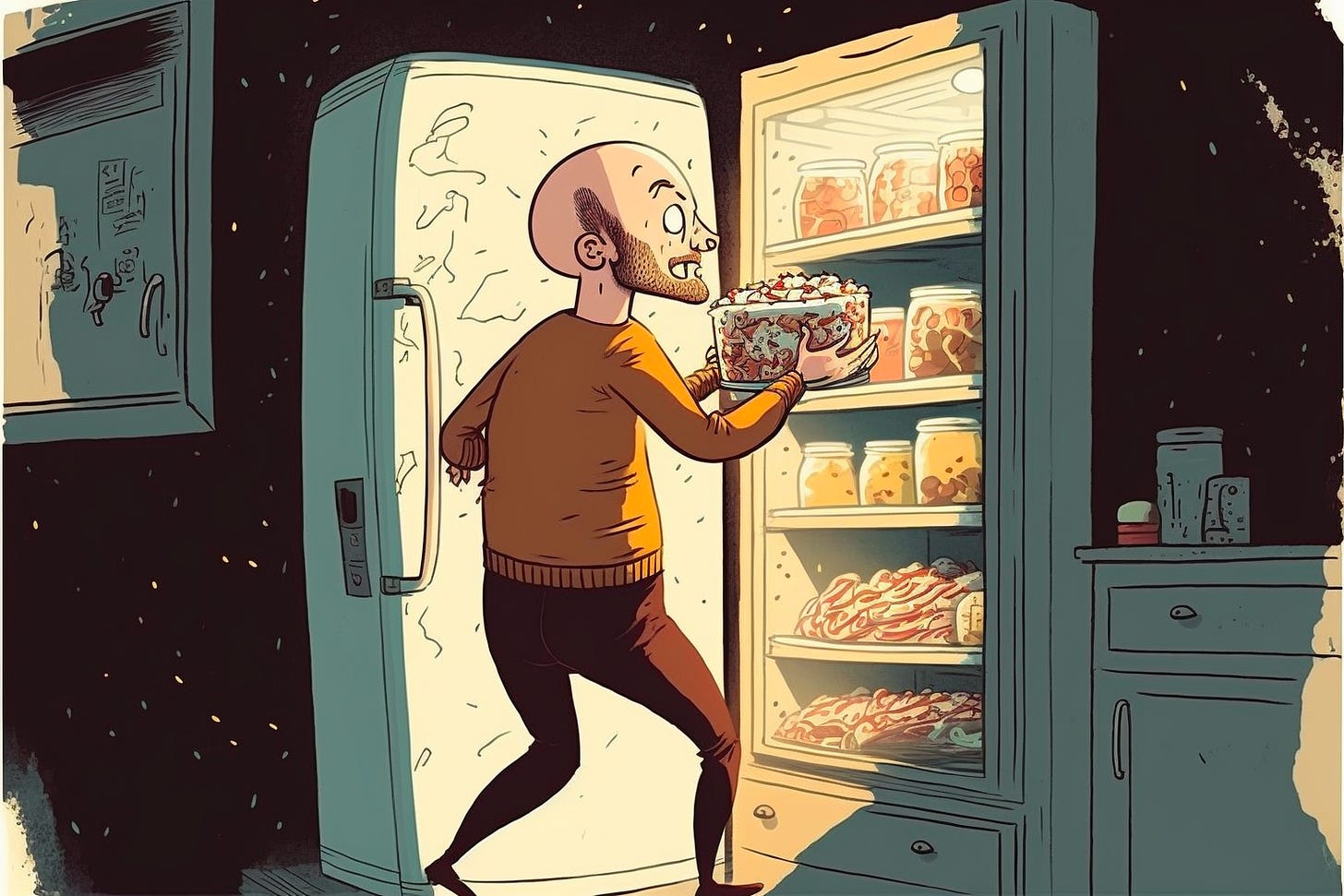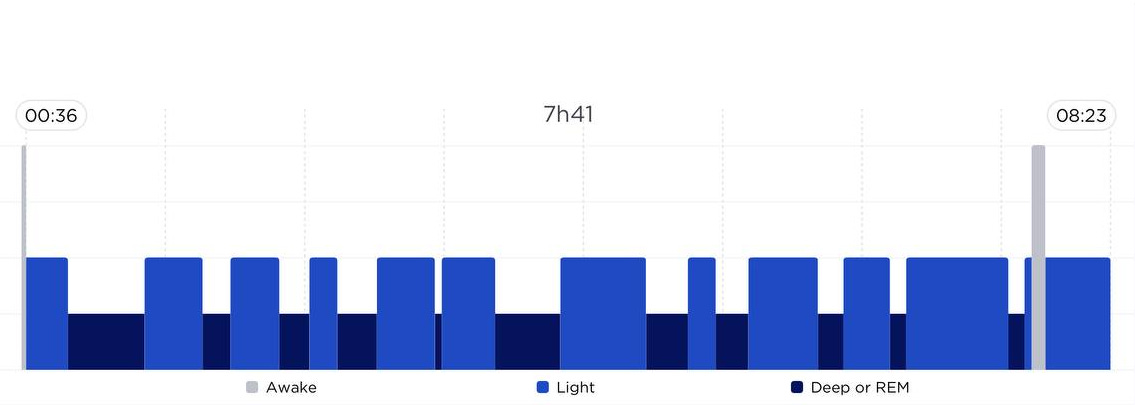Lifestyle changes I made to decelerate aging
Both tiny and drastic lifestyle changes have a great impact on accelerating and decelerating the biology of aging

I was over 95kg (over 210 pounds) on the 1st of January of 2016. I remember it clearly because that was the first time I jumped on a scale in a long time. In the past three years I had gained 25kg (55 pounds) mostly because I was spending all my time in a chair, programming, working most of my waking hours as a freelance software engineer.
I was never fit or good at sports. Besides the occasional run and some swimming now and then I had zero experience with exercise. I was also never concerned about my health or my nutrition. At the time I also wasn't sleeping well because I was dealing with acute anxiety and severe stress.
None of this is a reality for me anymore. I'm pretty fit right now, I'm very careful with my nutrition, I sleep fairly well, the acute anxiety has stopped and I have a full bag of tricks to deal with stress when it comes to visit. What I didn't know back then was how my lifestyle was making me get older faster than I wanted.
Today I want to write about how lifestyle accelerates or decelerates aging. Before continuing I want to make it clear that at the time of this writing, there is nothing you can do to pause or reverse aging. No matter what biohacking trick you try. You can merely accelerate or decelerate it. And even then you could only reach 120 in the best case scenario.
One of the most obvious effects of not exercising was that I didn't have much muscle mass and of course I didn't have any strength or aerobic capacity. The more I sat in that chair, the more I struggled with basic stuff like climbing stairs.
And it's not just my muscles that were suffering. Not moving at all had also had an impact on my cardiovascular health. I would get out of breath more easily and my heart didn't seem to be pumping as efficiently as it used to. This made me more prone to feeling tired and sluggish.
Confronting the reality of my weight made my anxiety even worse. I couldn't sleep so I started walking at night: two or three hours while listening to music and podcasts. In a few weeks I started to see some results. In a few months I was at the gym going strong on the elliptical while watching depression inducing episodes of Bojack Horseman. After six months I had lost 10kg (around 22 pounds).
But gaining muscle mass is very hard. Way harder than losing fat. To lose fat you only need to be in a caloric deficit. So my walking and the countless kilometers on the elliptical were enough. But to gain muscle mass you need to lift, push and pull heavy weights. So I timidly started using the gym machines. At first they seemed little monstrosities to me but over time I learned to love them. Six months later and I lost another 10kg (around 22 pounds).
Aging makes gaining muscle harder and harder because sarcopenia, the age-related loss of muscle mass and strength. When we talk about sarcopenia we think of frail people in their retirement age but actually the decline starts as early as your 30s mostly accelerated by not exercising enough. This frailty is no joke; more than 700k people die from falling every single year. Crazy.

Some cellular and molecular processes responsible for the aging process negatively affect your ability to exercise with the same intensity as when you are younger:
- Loss of proteostasis → proteostasis is the balance of protein production and degradation in the body. As we age, the balance can shift towards protein degradation, leading to muscle loss
- Mitochondrial dysfunction → mitochondria are the powerhouses of cells and are responsible for generating energy. As you age, mitochondrial function can decline, leading to a decrease in muscle mass and strength
- Cellular senescence → senescent cells are cells that have stopped dividing and can contribute to the development of age-related diseases. The accumulation of senescent cells in muscle tissue may contribute to sarcopenia
- Stem cell exhaustion → stem cells are responsible for repairing and regenerating tissues. With time, stem cell function declines, leading to a decrease in muscle mass and strength
But exercise can also regulate those processes to decelerate the aging process. It has been shown to reduce genomic instability, slow telomere attrition, have a positive effect on epigenetic changes, maintain proteostasis, improve nutrient sensing, improve mitochondrial function, reduce the accumulation of senescent cells, improve stem cell function and improve intercellular communication.
Rhonda Patrick did a very good podcast episode with the Buck Institute for Research on Aging. Peter Attia has a ton of material on exercising for longevity but this episode is a pretty good summary. When you're done with this post, go check them out.

At the time I didn't know that being overweight comes with an increased risk of:
- Cardiovascular disease → heart disease, stroke and Alzheimer's
- Type 2 diabetes → high blood sugar levels
- Some cancers → breast cancer, colorectal cancer, and endometrial cancer
- Osteoarthritis → a condition that causes pain and stiffness in the joints
- Sleep apnea → Being overweight can increase the risk of sleep apnea, a condition that causes interrupted breathing during sleep
Obesity is what Dr. Howard Luks calls an "area under the curve issue": the more years we are dealing with it, the greater the risk.
Losing 20kg (25 pounds) in a year was a pretty good achievement. But it was mostly because the changes I made in my diet. You can't outrun your fork. The only person I knew back then that took care of their nutrition was a friend who was always bragging about how the food he ate kept him in the zone. A few years back he recommended me a book called the Zone Diet. I didn't know where else to start so I picked up the book and started reading.
The Zone Diet is a dietary plan that was developed in the 1990s by the biochemist Dr. Barry Sears. It is based on the idea that by eating a specific balance of macronutrients, you can control inflammation in the body and promote optimal health. Sears recommends a ratio of 40% carbs, 30% protein, and 30% fat in every meal, with a focus on low-glycemic index carbs and high intake of anti-inflammatory omega-3 fats, and low intake of omega-6 fats.
Now I know that the scientific basis for the Zone Diet recommendations is not well established and there is limited research on its long-term effectiveness. But back then it allowed me to have a more balanced nutrition. It introduced me to concepts like macros, inflammation and insulin resistance. It also taught me that what I eat can lead to drastic changes in my body. A poor diet accelerates aging by:
- Promoting inflammation → Dr. Barry Sears was right. If you eat unhealthy fats, such as trans fats and saturated fats, and processed foods the inflammation in your body will increase
- Accelerating DNA damage → eating a lot of refined carbs can lead to the production of advanced glycation end products (AGEs), which can damage DNA (a hallmark of aging)
- Promoting oxidative stress → if you don't eat fruits and vegetables, you won't get enough antioxidants which may increase oxidative stress in the body
- Impairing immune function → a poor diet that is low in nutrients can impair immune function, making the body less able to fight off infections and diseases
But taking care of what you eat can also regulate the aging process the other way around: support the immune function, reduce inflammation, promote brain health and support bone health and prevent osteoporosis.
I don't do any specific diet at the moment but my girlfriend always says that I eat diet food. I just focus on getting enough protein (2g per 1kg of weight), avoid highly processed foods and eat as varied as possible. I try to include fish, poultry, greens, tomatoes, legumes, polyunsaturated fats, olive oil, whole grains, complex carbs, zero fat cheese (like cottage cheese), avocado, nuts, low sugar fruits, tea, etc. I try to avoid sugar, deep fried food, bakery, fatty red meat, dairy, cheese, juice, sweeteners, alcohol, etc. I try not to order food more than once per week, and when I do I try to order something relatively healthy.

My relationship with food has always been disturbed by stress and anxiety. My anxiety started in 2014 when I realised that I was mortal; that one day I could stop existing. A deep existential crisis around the concept of death.
When I was feeling stressed by work or overwhelmed by anxiety, I tended to turn to food for comfort. I used to open the fridge and devour everything. When food delivery apps became more popular it became even easier. But I always felt guilty afterwards so as soon as I finished binging I used to got to the gym for a couple of hours to burn that feeling.
Even if I was taking care of my diet, I was not taking care of my stress and my anxiety yet. I learned the hard way that binging can't be solved by addressing my nutrition. Instead I had to address my anxiety.
Stress and anxiety are again, an "area under the curve issue". When you're stressed, your body releases cortisol and adrenaline. These hormones can stimulate your immune systems and increase inflammation. Inflammation is a normal response of the body's immune system to injury or infection. It involves the release of immune cells and chemicals that help to fight off the cause of the injury or infection. So some inflammation is necessary and beneficial but chronic inflammation is no good because it constantly produces inflammatory chemicals that accelerate the hallmarks of aging: oxidative stress, telomere shortening, DNA damage, protein degradation and the rest.
Stress can also disrupt the balance of bacteria in the gut, leading to inflammation in the digestive system. And can also lead to changes in appetite and eating habits, which can contribute to even more inflammation. Stress is no joke. People exposed to chronic stress age rapidly.
I decided to go to therapy. And if you have chronic stress or anxiety I advise you to do the same. I tried several therapists until I found one with whom I could have the type of conversations I needed to improve my mental health.
I also took breaks from social media periodically (I still do). And after going on and off Twitter and news platforms (Hacker News) in the past years, my hypothesis is that it's not the content itself but the format that's making me anxious. At least for me, it seems to be the constant context switch between short form content that usually gives me anxiety. Every tweet is a different context, written by a different person about something completely different. With no relation between tweets (or photos on Instagram). This is very different from a chat room where I'm having conversations with other people exploring the same context. I've been exposed to drama, trauma and really horrible things through life itself and through long form content (books and articles) and for reason I didn't get anxiety from all that. My hypothesis is that timelines overcharge my brain. I don't know if anyone has studied this but if you do, DM me. I'm really interested in the topic.

Recently I also started meditating several times a week. I use the Wim Hof method because other methods haven't work for me.
Now that I am exercising periodically, taking care of my nutrition and my anxiety is practically gone, I am finally able to sleep well.

When you don't get enough sleep, your body doesn't have a chance to repair and restore itself, which in turn accelerates the aging process by:
- Accelerating cellular senescence → by increasing oxidative stress and inflammation, which can damage cells and lead to their demise
- Increasing risk of DNA damage → and an impaired ability to repair it, which can contribute to genomic instability.
- Deregulating metabolism → which can lead to an increased risk of obesity and the development of other chronic disease
But besides the lack of sleep accelerates the cellular and molecular hallmarks of aging, it can lead to an increase in inflammation and disrupt your body's natural hormone balance, which can lead to an increase in stress hormones and a decrease in growth hormone and testosterone. All this leading to an increased risk of obesity, decreased muscle mass and strength, and decreased bone density. If you don't sleep well you're also at an increased risk of developing Alzheimer's disease and other forms of dementia, as well as to a decline in cognitive function and memory. No joke.
Matthew Walker has written an amazing book called Why We Sleep that I think is very much worth reading. He also did a 3 hour podcast episode with Dr. Huberman. Go and listen to it after you're finished.
Besides physical exercise, nutrition, stress and sleep there are other things that I choose to do to decelerate aging:
- Having a purpose. Many people living in the Blue Zones have a strong sense of purpose or meaning in life, which may contribute to their overall well-being and longevity. The Blue Zones are geographic regions around the world where people live longer, healthier lives and have a higher rate of centenarians (people who live to 100 years old). In my case it's to live as long as possible, as healthy as possible
- Supplements. There are very few supplements backed by scientific studies. The ones that I take are Creatine Monohydrate, matcha tea (for the caffeine + L-theanine), Collagen, Hyaluronic Acid, vitamin D3, vitamin K2 and vitamin B12. Besides I take prebiotics, probiotics and psyllium husk twice a day. Also even if there is no hard evidence that they work, I take berberine and red yeast rice to maintain my cholesterol down
- Heat and cold exposure. I started taking cold showers in the morning. I already wrote about this
- Getting checked periodically → At least twice a year I get a blood test analysis to see if everything is alright
- Dental and skin hygiene → Once a friend told me that There are two things you can't recover: your skin and your teeth. So take care of them. And he was right. I do periodical visits to the dentist and dermatologist
- Socialising. Last but not least. I don't consider myself a very social person and I don't have a lot of friends, but the friends I do have, I try to keep close
I will try to do a prolonged fast once per quarter. I will start the year with one. It'll be my first and I'll for sure write down the experience. So... subscribe.
It was a long road to arrive at the point where I'm today: almost 30 and in the best physical shape of my life. If you have a similar story, I'd really like to listen to it.